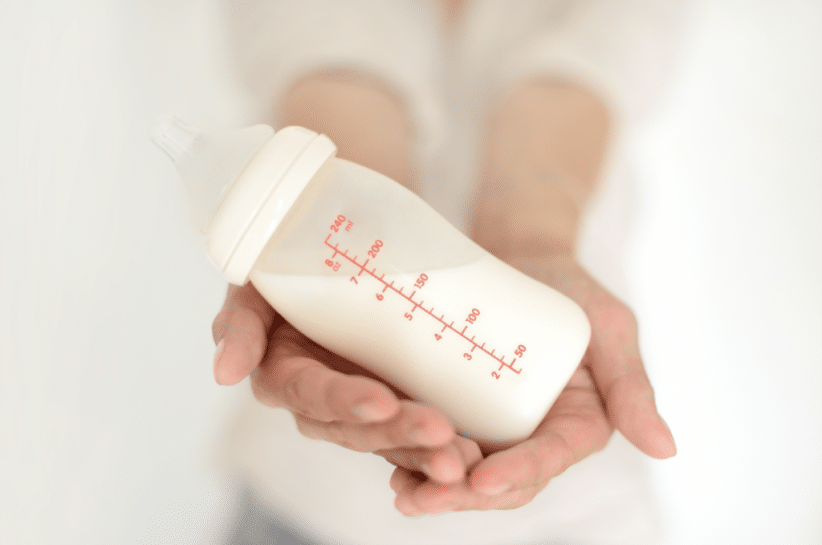In her book, “Parenting, Inc.,” mother of two Pamela Paul presents an alarming figure: the cost of raising a child in the United States today is upwards of $1 million dollars. She also asks the question, How much of this is money well spent? Here, Paul discusses the billiondollar baby business she says is preying on parents’ insecurities to sell them products and services they don’t really need—and which may, in fact, have a negative effect on their children’s development.
Why did you decide to write this book?
There are so many more products and services out there today related to parenting, most of which were not around when we were growing up. I asked the natural question, “Is all this stuff necessary, and is it making our lives as parents, and our children’s lives, better or worse?” In my research as a reporter, it became clear that a lot of what products and services say they are going to do is not only [false], but very often counterproductive.
Can you give an example?
One of the most obvious examples is baby media. There are so many media that are intentionally sold to parents of children under two, yet the American Academy of Pediatrics recommends absolutely no media for children under two. They’re not supposed to have any screen time, whether it’s a computer screen, television screen, or iPod screen.
Yet, there’s “Baby Einstein” and hundreds of other videos and TV channels developed for kids. So there’s this really big mismatch between what advertisers are telling parents is appropriate and what scientists and educators and doctors and linguists are saying is appropriate.
Are there any regulations to control the kinds of claims some of these products make?
No. After there was a complaint made to the Federal Communications Commission last year, “Baby Einstein,” for example, took off many of the education claims that were on the packaging, but when the product is called “Baby Einstein,” it’s kind of hard to get rid of the idea parents have that it is in some way educational. If it were called “Baby Couch Potato,” that would more accurately describe what the product does, which is to teach your child how to watch television.
Why do you think parents are such a target for marketers?
We are incredibly vulnerable. We care so much about our kids. The industry has grown enormously since the Baby Boomers became parents in the 1980s and 1990s and began spending so much on their children. A lot of companies and entrepreneurs saw the opportunity and created new products, which in turn created this parenting consumer culture, where caring enormously has turned into spending enormously. The average American child, for example, gets 70 toys a year. When we give them 70 toys a year, we deprive children of the resourcefulness they develop when they have 5 toys a year and have to figure out 10 different ways to play with them. We teach them not to value things
and to cycle through these products very quickly. It eventually imparts
lessons related to materialism and the environment that most parents
don’t really want to be teaching their children.
How can parents discern
which products and services are actually good for the children?
You have to look
at the research. What I tried to do with the book was create guidelines
for some of these products so people had a better sense of what to get
and what to lose. In terms of toys, a good rule of thumb is, the more
boring it looks to you as a parent, the better it is for your child. The
best toys are 90 percent child, 10 percent toy. I am very wary of toys
that have smart chips, batteries, or bells and whistles of any kind,
because that means that the toy’s doing the thinking and not the child.
Have you found
studies that explore the effects of these toys on kids?
Yes. I’ll give one example.
Lab studies have shown that when a toy has a button that you press and
it makes the toy do something—like make a light go off or music come
on—once the child figures out that connection (and that happens very
quickly), that toy ceases to be educational, and the learning is done.
Whereas with a plain wooden block, the learning does not stop.
What was the most
surprising thing that you found while doing research for the book?
I was very
prepared to think that all of the people that you can hire to help you
as a parent were exploitative and were taking advantage of parents’
vulnerabilities. In fact, while I think you can go overboard in hiring
people to help you raise your kids, I think the whole idea that
“outsourcing parenthood is a terrible thing” is way out of line.
Parents can benefit
enormously from lactation consultants, doulas and baby nurses, and
people who help your child sleep better. I think it makes so much more
sense to spend $400 on a sleeping coach than to spend $3,000 on a
designer crib. Getting your child to sleep has very profound results for
both the baby and for the parents and for any siblings.
Do you think parenting
has changed as a result of the products, classes, and services that are
now available?
I do. I think that we‘ve really lost the concept of benign neglect,
which I think is very powerful. Kids do well when they are left to
flourish and learn on their own. It teaches them resourcefulness,
resilience, independence, and independent thinking.





















